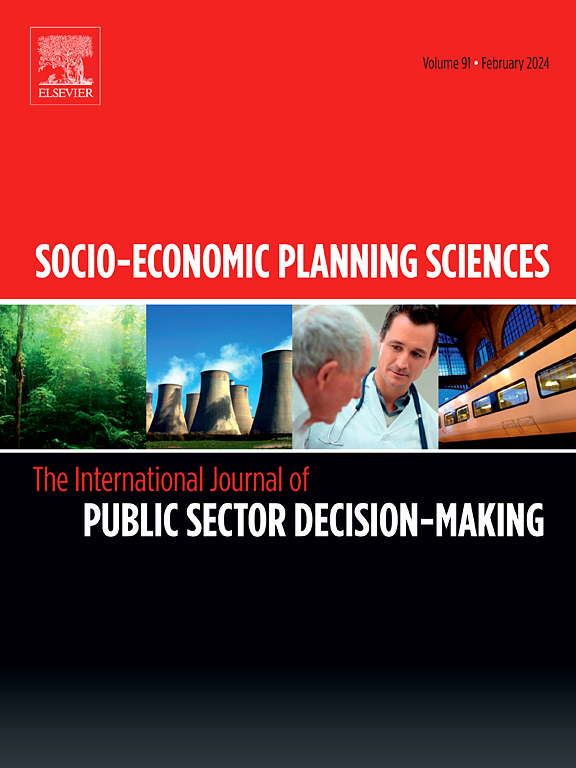Performance evaluation of Chinese and foreign property insurance companies considering negative data: Based on the dynamic two-stage IBP-SBM model
IF 5.4
2区 经济学
Q1 ECONOMICS
引用次数: 0
Abstract
In the insurance industry, performance evaluation is a crucial instrument for resource management, allocation, and industry development. Negative data, however, have received little attention in the present evaluation system and are considered an undesirable consequence of research evaluation. To fill this gap, this paper establishes an evaluation indicator system that includes negative data and proposes the dynamic two-stage improved base point slacks-based measure (IBP-SBM) model for handling negative data. The model fully considers the internal structure of the production process and the measurement of intermediate products, and obtains the system efficiency and stage efficiency in two steps. In order to verify the applicability of the model, we evaluate the performance of 48 Chinese and foreign property insurance companies over the period from 2018 to 2020 through the proposed model. The empirical results indicate that variations in the investment stage are primarily responsible for shifts in the overall efficiency of the property insurance industry. With this method, decision-making is aided by a wealth of information.
考虑负数据的中外财险公司绩效评价——基于动态两阶段IBP-SBM模型
在保险行业,绩效评估是资源管理、配置和行业发展的重要工具。然而,负面数据在目前的评价体系中很少受到重视,被认为是研究评价的不良后果。为了填补这一空白,本文建立了包含负数据的评价指标体系,并提出了处理负数据的动态两阶段改进基点松弛度量(IBP-SBM)模型。该模型充分考虑了生产过程的内部结构和中间产品的度量,分两步得到了系统效率和阶段效率。为了验证模型的适用性,我们通过提出的模型对48家中外财险公司在2018年至2020年期间的业绩进行了评估。实证结果表明,投资阶段的变化是导致财险行业整体效率变化的主要原因。用这种方法,决策是由丰富的信息辅助。
本文章由计算机程序翻译,如有差异,请以英文原文为准。
求助全文
约1分钟内获得全文
求助全文
来源期刊

Socio-economic Planning Sciences
OPERATIONS RESEARCH & MANAGEMENT SCIENCE-
CiteScore
9.40
自引率
13.10%
发文量
294
审稿时长
58 days
期刊介绍:
Studies directed toward the more effective utilization of existing resources, e.g. mathematical programming models of health care delivery systems with relevance to more effective program design; systems analysis of fire outbreaks and its relevance to the location of fire stations; statistical analysis of the efficiency of a developing country economy or industry.
Studies relating to the interaction of various segments of society and technology, e.g. the effects of government health policies on the utilization and design of hospital facilities; the relationship between housing density and the demands on public transportation or other service facilities: patterns and implications of urban development and air or water pollution.
Studies devoted to the anticipations of and response to future needs for social, health and other human services, e.g. the relationship between industrial growth and the development of educational resources in affected areas; investigation of future demands for material and child health resources in a developing country; design of effective recycling in an urban setting.
 求助内容:
求助内容: 应助结果提醒方式:
应助结果提醒方式:


